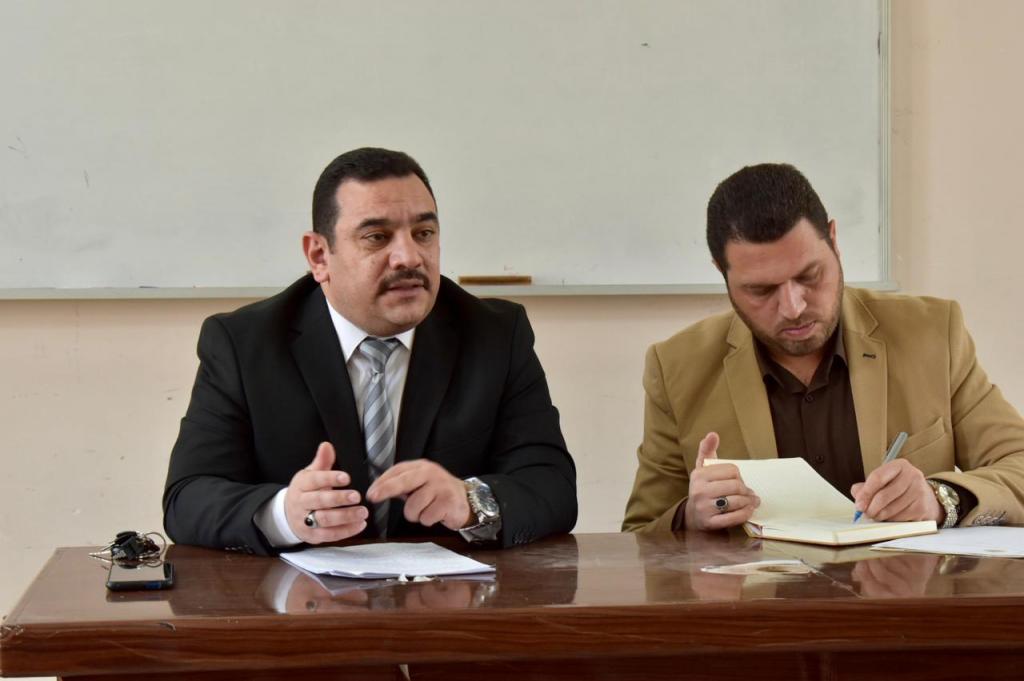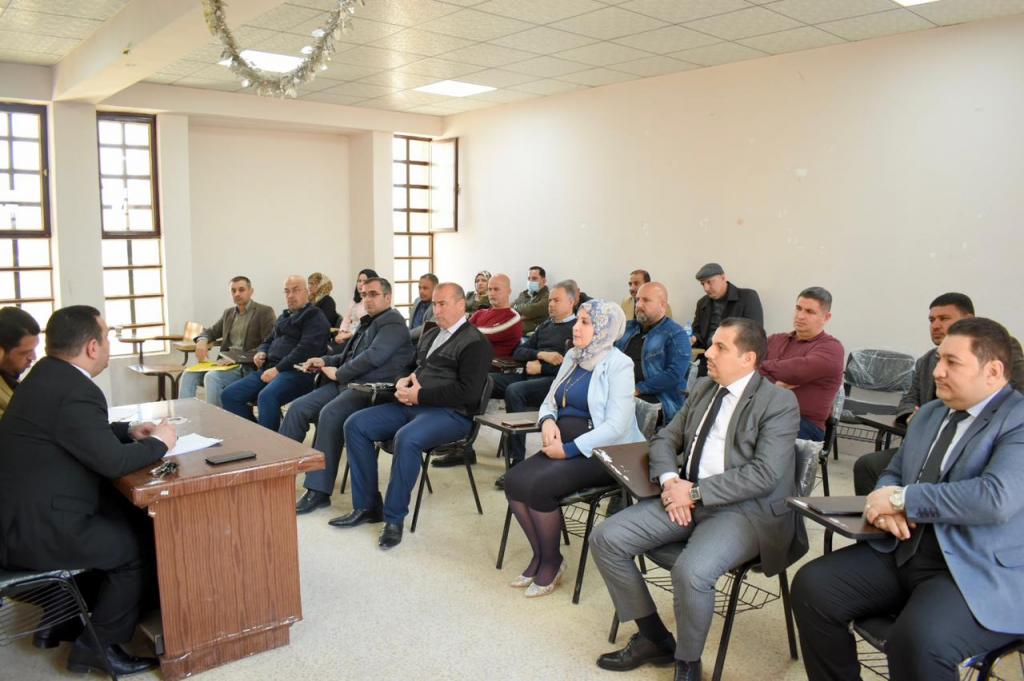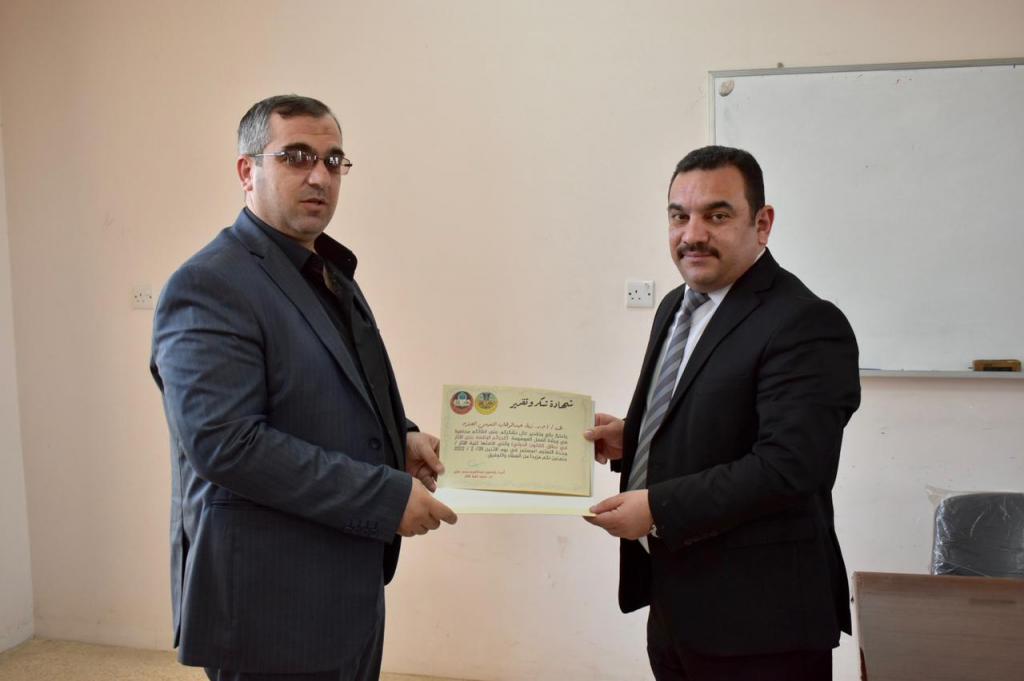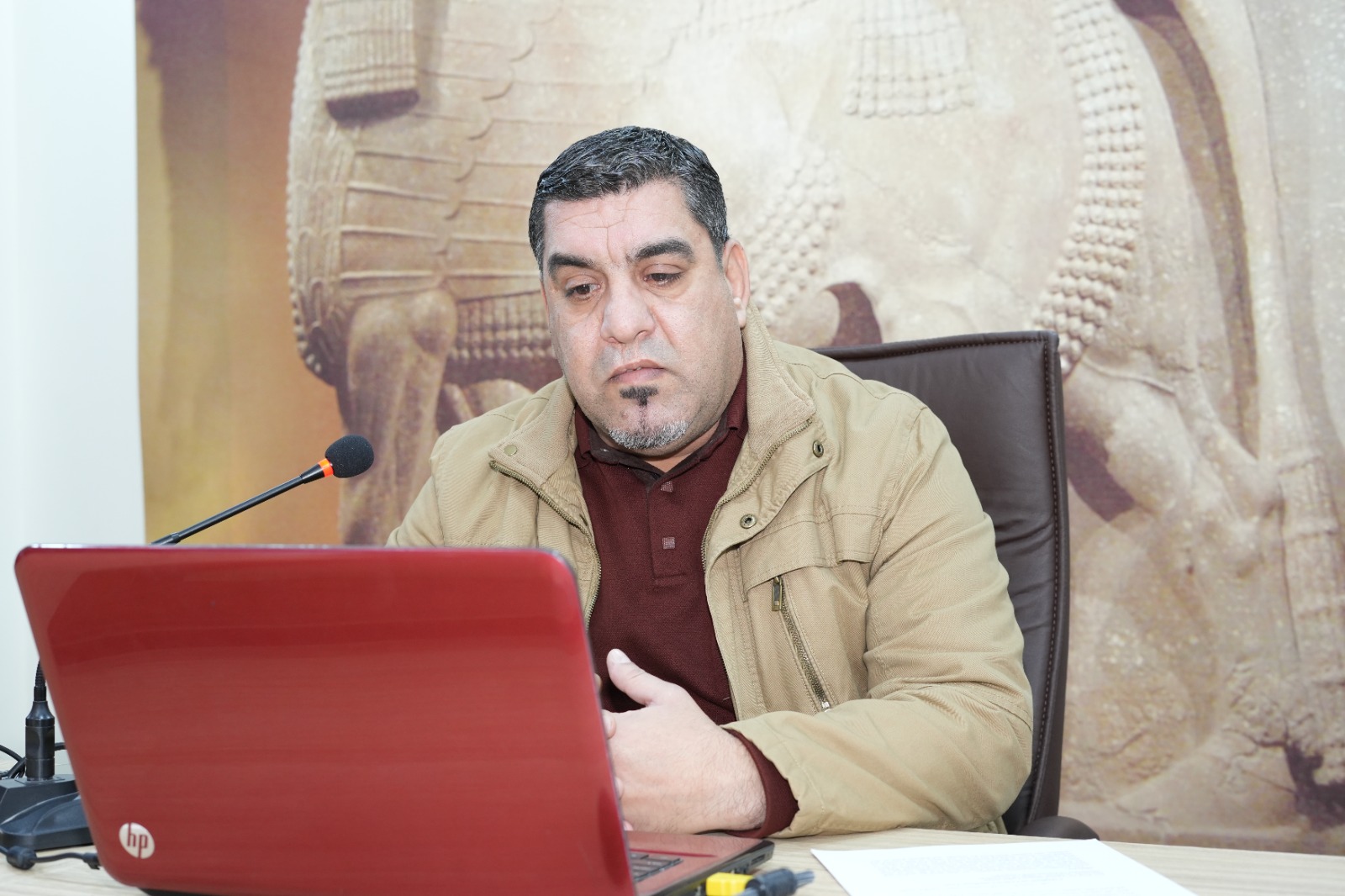28 February، 2022
A workshop on “the crimes within international perspective targeted archaeological sites”

College of Archaeology/ continuing education held a workshop entitled “the crimes within international perspective targeted archaeological sites” delivered by Asst.Prof. Dr. Zeyad Abdulwahab Al-Nuaimi. The workshop tackled the articles by private international law about antiquities where it defined them as a common history for humanity and property by the government. These sites might be placed under the danger of crimes by individuals, occupying military forces or outlaw gangs. The crimes can be classified into the period of peaceful times or during an armed conflict whether it is national or international. This classification leads to divide the crimes into two cases: the first one is the crimes during peace times and the crimes during fight and armed conflicts. The aggression against archaeological sites and cultural heritage may happen for different reasons like military needs, self defense or any other reasons that the other party finds it necessary to target these sites. These crimes in both types produced the necessity to provide law articles to protect archaeology through international agreements which are considered the first source of law International law. These articles provide the required international protection to them and also to criminalize the actions that are considered unacceptable against these sites. The international criminal court for the first time started to criminalize the actions preformed by terrorist entities and considered them a crime to destroy the historical landmarks. Article 8, clause b, mentioned that the we crimes happen if there was an intent to attack religious, educational, charity, art, or historical archaeological buildings. The article successfully handled the aggression against the historical antiquities since it did it stipulate that the attack should be wide or also not to be total destruction but the attack by it self is considered a crime. The reason behind that because cultural properties are considered the spiritual and cultural heritage for people and any insult or aggression against them whatever the nature is can be considered as a crime under the responsibility of international law. In addition, via The Hague agreement, the international law provided a general protection for the cultural properties and a private protection where mentioned in the additional protocol of the 1999 to more protection.



















